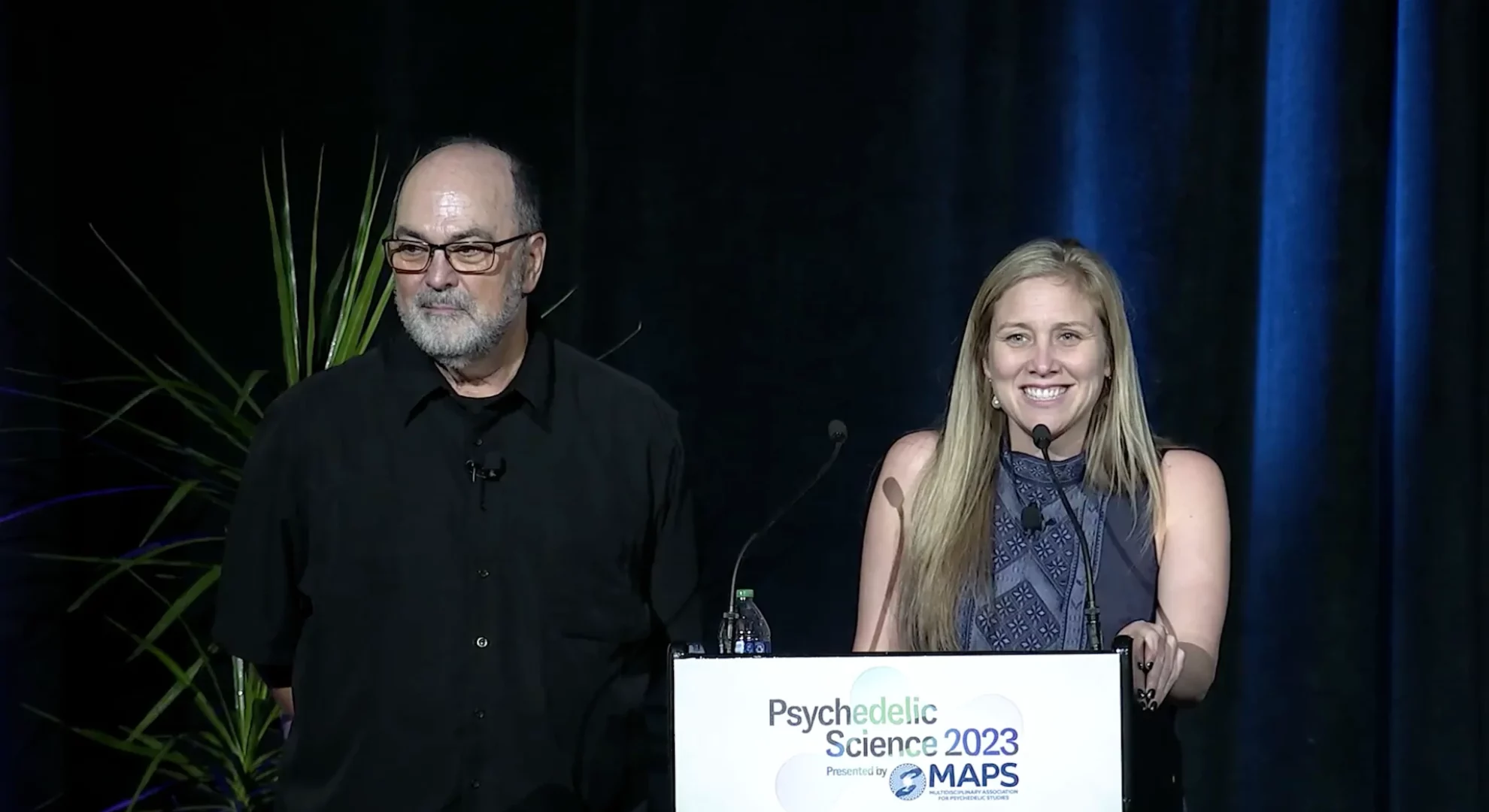
Investigational MDMA-assisted therapy and eating disorder symptoms in a randomized placebo-controlled trial for severe PTSD
Eating disorders (EDs) and PTSD are highly comorbid, and integrative treatment modalities are direly needed. MDMA-assisted therapy (MDMA-AT) shows marked success in the treatment of PTSD and is promising for ED-PTSD. Ninety individuals with severe PTSD received treatment in a double-blind, placebo-controlled trial. In addition to primary and secondary outcome measures, the Eating Attitudes Test 26 (EAT-26) was administered at baseline and study termination. Fifty-eight females (placebo=31, MDMA=27) and 31 males (placebo=12, MDMA=19) participated, and seven discontinued prior to termination. At baseline, 13 (15%) of the 89 individuals with PTSD had total EAT-26 scores in the clinical range (≥20), and 28 (31.5%) had total EAT-26 scores in the high-risk range (≥11) despite absence of active purging or low weight. In completers (n=82), there was significant reduction in total EAT-26 scores in the total group following MDMA-AT versus placebo (p=.03). There were also significant reductions in total EAT-26 scores in women with high EAT-26 scores ≥11 and ≥20 following MDMA-AT versus placebo (p=.0012, p=.0478, respectively). ED psychopathology is associated with PTSD even in the absence of overt EDs. MDMA-AT significantly reduced ED symptoms compared to placebo among participants with severe PTSD. MDMA-AT for ED-PTSD appears promising and requires further study.
Share: Investigational MDMA-assisted therapy and eating disorder symptoms in a randomized placebo-controlled trial for severe PTSD
Facebook
Twitter
LinkedIn
Email




